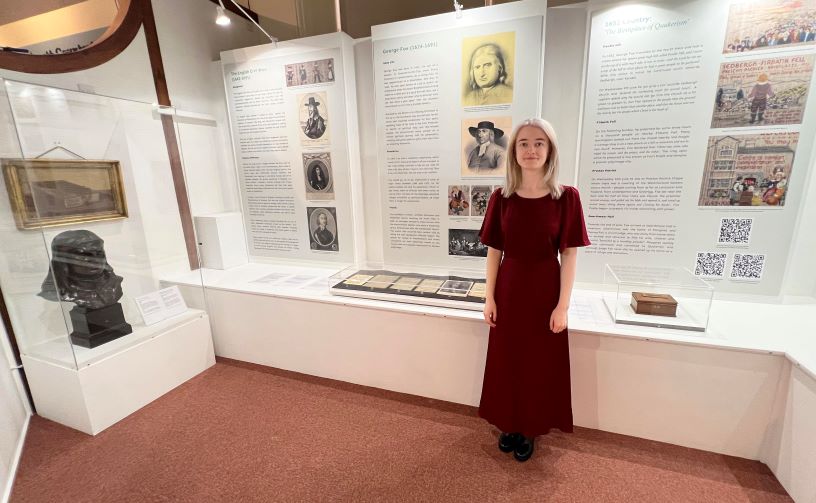Major exhibition celebrates four hundred years of Quakerism
To mark four centuries of Quakerism, Quakers in Britain has contributed to a major exhibition at the Quaker Tapestry Museum in Kendal.

The exhibition celebrates the 400th birthday of Quaker co-founder, George Fox, one of the most important figures in the history of Nonconformist religion in Britain.
It features originals and reproductions loaned by the Library of the Society of Friends in London and Swarthmoor Hall in Ulverston
Items loaned include some central to the birth of Quakerism, such as pamphlets about what became core Quaker beliefs in peace and equality.
Fox is the best known of the men and women who founded Quakerism during the English Civil Wars, when many groups began to reconsider the role of the established church.
Living with integrity
He made a point of living with integrity, acting against injustice and building a faith community that practiced what they preached, looking for that of God in everyone.
Several early Quakers were prominent women, including Margaret Fell who travelled the UK preaching, along with Elizabeth Hooton and others.
The exhibition includes reproductions of Fell's pamphlet, Declaration from the harmless & innocent people called Quakers, the first time the Quaker commitment to peace was mentioned.
Another, Womens Speaking justified, represents Fell's defence of women's right to give ministry in Quaker meeting.
Quakers through history have continued to live out these values of peace and equality, alongside truth and simplicity.
They played an important role in the abolition of slavery, modelling fair employment practices and working for humanitarian and social change.
Today, Quakers in Britain work for peace, climate, and social justice. Quaker communities create spaces for people of all faiths and none to explore their beliefs in quiet stillness.
The exhibition also features a reproduction of George Fox's wax seal and an original small oak box with the brass plate inscription: "Made from oak beam of cottage at Fenny Drayton where George Fox was born, 1624".
“Sing and Rejoice: George Fox, the English Civil Wars and the Beginnings of Quakerism" will be on until 14 December 2024.
Entry is included with general admission, opening hours until the end of October are Tuesday to Saturday, 10am to 5pm, last admission 4pm.
From November onwards the museum is open Wednesday to Saturday.